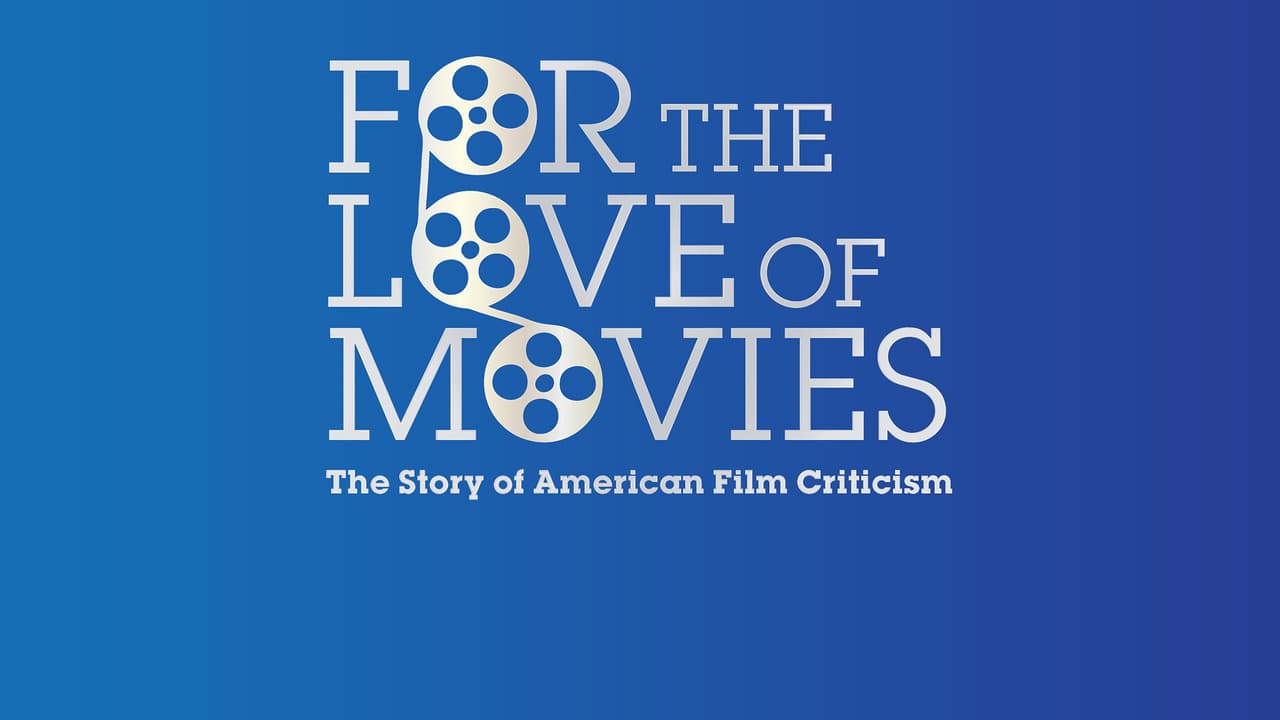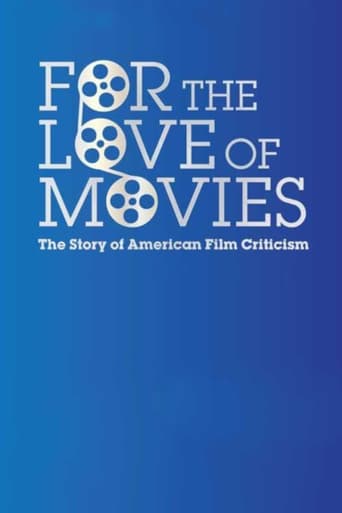Ginger
Very good movie overall, highly recommended. Most of the negative reviews don't have any merit and are all pollitically based. Give this movie a chance at least, and it might give you a different perspective.
asc85
Since there are so few resources on the critique of film criticism (i.e., meta-criticism), a film like this is very interesting to me, and I suppose many others who are the frustrated film critics writing down their thoughts/opinions in venues like this on IMDb! I enjoyed listening to what Andrew Sarris and Pauline Kael had to say, as well as Roger Ebert and a fantastic-looking Molly Haskell. Many of the other critics seemed a little too self-important and full of themselves, which wasn't much of a surprise to me.The problem I had with this film occurred at the beginning and the end of it, where director Peary laments the fact that film critics are being fired at newspapers, like Elvis Mitchell, Jami Bernard, and Michael Wilmington. While I take no pleasure in people losing their jobs, it was hard to feel bad for people who clearly would end up landing on their feet doing something else. As much as I like film criticism, these people are not curing cancer, and I fail to see the "crisis" of film critics losing their jobs.
cinemafred
This film gave me the fun of listening to various people talking on a subject that interests me. I love,also, the way that it was done in a 1907 to the future manner that gave a historical form to it. Opinions are such a pleasure to hear, no matter whether I agree or not. My favorite was James Cagney's from the 30's film.I was sorry they did not mention Susan Sontag. Another thing that critics do today that works for me is to put commentary tracks on DVDs such As the fine one that Roger Ebert does on "Citizen Kane".As i watched "For the Love of Movies" I thought, sometimes the best par of the movie is the cup of coffee we share after.
Robert J. Maxwell
I don't know why so many people have been critical of this production. If Gerald Peary hasn't put together a masterpiece, he's at least delivered a documentary history of film criticism, full of talking heads and clips from the films themselves, that is both entertaining and informative.The two most engaging points, I thought, were the feud between Pauline Kael and Andrew Sarris. I won't get into the substance of the conflict. Kael was a splendid writer who knew how to structure an essay, but, as a personality, she comes in second -- bitchy and manipulative -- while Sarris seems generous and forgiving.The other observation was that print criticism by professionals is fast disappearing, along with the media that were their conduits to the public. Experienced reviewers cost money. It's easier to replace them with red hots who will work for coolie wages. Furthermore, nobody reads newspapers or magazines anymore. Everyone is on the internet. (Even Gerald Peary.) If you want to write a movie review, you can do so, even if you can't spell your own name. I expect this reflects a general degradation of our arts.I'll give an example of what I mean by that last Olympian generalization. In, I think, 1968, Stanley Kauffmann was teaching film studies at Columbia. He had just shown Otto Preminger's "Joan of Arc" and asked for responses. Man, did he get them, and they were sophisticated too, comparing Preminger to Carl Dreyer's silent "The Passion of Joan of Arc," commenting on the evolving historical and regional images of Joan of Arc, drawing from Shakespeare, who portrayed her as a villain, and so forth. Kauffmann was inspired to write an essay, "The Film Generation", predicting that in another twenty or so years everyone would be as familiar with historical films as they were with classic novels. Twenty years later he wrote another essay, correcting himself. Students were dumber than ever. Not only couldn't they compare Dreyer to Preminger, they had to stretch for Joan of Arc. (My students were unable to identify my peerless impression of Jimmy Cagney.) Peary doesn't blame the internet entirely, and neither would I, but a general deterioration of our intellectual curiosity -- our willingness to face any kind of challenging material -- just seems so obvious. We elect governors because they've been stars of mindless movies and presidents because we'd like to have a beer with them. "Belles lettres? Think I'll pass on that. I'll have another chili dog, and a Bud for my main man here." And I suppose it's becoming excessive to ask that an indefinite article and a common noun be separate words -- "a lot" rather than "alot." And that "losing" shouldn't be spelled "loosing." On top of all that, today's youngsters are promiscuous, by cracky. Well, don't get me started. I get all excited, my pince-nez falls off.Among the ranks of talking heads, I sort of missed John Simon. Of course he's retired now but there ought to be footage of him around somewhere and he was by far the most savage of critics from the 70s and 80s. Who else, of the Maysles brother's "Gimme Shelter," featuring the Rolling Stones, could write: "Here we are, hungry for bread and the director gives us stones"? At any rate, I enjoyed this documentary and would recommend it to just about anyone with an interest in movies -- and to anyone under the age of 30, with or without that interest, because it will all be news to them.

